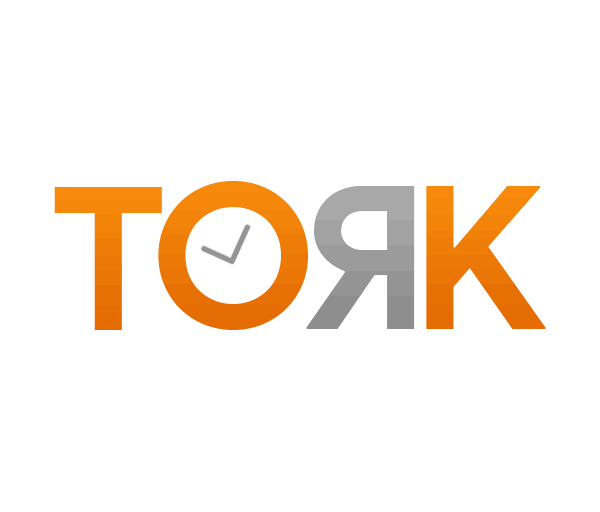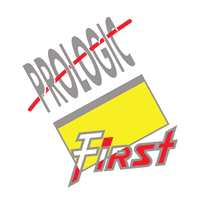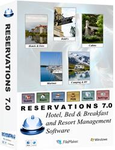Description

MQSYS Hotel

TORK
Comprehensive Overview: MQSYS Hotel vs TORK
As of my last update, there isn’t a well-documented entity known as "MQSYS Hotel, TORK" within the hospitality or technology sectors. It’s possible you might be referencing a niche or emerging product, company, or platform that hasn’t gained widespread recognition or documentation online. However, I can provide a general framework on how hotel management systems and tools like “MQSYS Hotel” could be analyzed:
a) Primary Functions and Target Markets
Hotel management systems (HMS) are designed to streamline and enhance the operations of a hotel or hospitality business. These systems typically offer features such as:
- Reservations Management: Booking, room allocation, and inventory management.
- Front Desk Operations: Check-in/check-out, guest messaging, and concierge services.
- Housekeeping Management: Task assignment and status tracking for cleaning staff.
- Revenue Management: Rate setting, forecasting, and revenue maximization strategies.
- Customer Relationship Management (CRM): Guest profiles, preference tracking, and personalized communication.
- Point of Sale (POS): Transaction management for restaurant and bar services within the hotel.
- Reporting and Analytics: Insights into operational performance and financial health.
Target Market:
The primary market for hotel management systems includes:
- Small to Medium-Sized Hotels: These systems help optimize operations without extensive resources.
- Large Hotels and Chains: They require comprehensive solutions to manage numerous properties and large volumes of guests.
- Boutique and Independent Hotels: Focused on personalized services and niche market clientele.
- Hospitality Management Companies: Offering centralized solutions to manage multiple properties.
b) Market Share and User Base
Without specific data on “MQSYS Hotel” and “TORK,” a detailed comparison of market share is speculative. However, hotel management systems generally compete in a diverse and fragmented market. Well-established players might include:
- Oracle Hospitality (OPERA)
- Sabre Hospitality Solutions
- Amadeus
- Maestro PMS
- Cloudbeds
The market share of any HMS correlates with factors such as usability, cost-effectiveness, customer support, scalability, and technological innovation. User base can vary from a few hundred to several thousand properties depending on the product's reputation, reliability, and marketing efforts.
c) Key Differentiating Factors
For hypothetical systems like “MQSYS Hotel” or “TORK,” differentiating factors typically involve:
- Technology Stack: Cloud-based vs. on-premise solutions and the integration of AI or IoT for better service personalization.
- User Experience: Ease of use, intuitive interfaces, and level of automation offered.
- Customization Options: Flexibility to adapt to different types of hospitality operations, from luxury resorts to budget lodgings.
- Customer Support and Training: Availability and quality of support and comprehensive training to ensure smooth implementation.
- Price Point: Affordability compared to functionalities offered, including subscription versus one-time license costs.
- Integration Capabilities: Ability to seamless connect with other third-party platforms like payment gateways, CRM systems, and travel agencies.
If specific details are desired regarding MQSYS Hotel or TORK, I recommend directly checking the companies’ official communications, client testimonials, industry reviews, and data backed reports for up-to-date and accurate information.
Contact Info

Year founded :
Not Available
Not Available
Not Available
Not Available
Not Available

Year founded :
2018
Not Available
Not Available
United Kingdom
Not Available
Feature Similarity Breakdown: MQSYS Hotel, TORK
To provide a detailed feature similarity breakdown for MQSYS Hotel and TORK, I would need to access up-to-date and specific information. However, I can outline a general approach for how you might analyze and compare these two hotel management systems based on common industry features, user interfaces, and unique characteristics.
a) Core Features in Common
Generally, hotel management systems like MQSYS Hotel and TORK tend to have the following core features:
- Reservation Management: Both systems likely offer tools for managing bookings, including direct and third-party reservations.
- Front Desk Operations: Features for check-in/check-out, room assignments, and guest service management.
- Billing and Invoicing: Tools for managing guest billing, including integration with payment gateways.
- Housekeeping Management: Capabilities for tracking room status (clean, dirty, out of service) and scheduling housekeeping tasks.
- Reports and Analytics: Access to sales reports, occupancy statistics, and performance metrics.
- Customer Relationship Management: Tools for managing guest profiles, preferences, and communication.
- Channel Management: Features that connect with online travel agencies (OTAs) and global distribution systems (GDS).
b) User Interface Comparison
When comparing user interfaces, consider the following aspects:
- Design and Usability: Look at the layout and how intuitive each system is for the user. Is the interface clean and modern, or outdated and cluttered?
- Navigation: Compare how users move between different sections of the software. Are the workflows streamlined and logical?
- Customization: Evaluate the ability to customize dashboards and reports according to user preferences and needs.
- Accessibility: Note if the interface is accessible from various devices (desktop, tablet, mobile) and how responsive it is on these platforms.
c) Unique Features
Unique features are those that give one product a competitive edge over another. This could include:
- MQSYS Hotel might offer unique integrations with certain hospitality tech or have specialized features for specific market needs.
- TORK could provide advanced automation features, enhanced guest self-service portals, or additional scalability for larger chains.
Steps to Obtain Accurate Comparisons
- Product Demos/Trials: Engage with both products’ demos to get a practical sense of their offerings.
- Consult User Reviews: Explore forums, reviews, and feedback from real users who have hands-on experience with both systems.
- Vendor Consultations: Contact sales representatives to discuss specific requirements and see how each product aligns with these needs.
- Industry Reports: Look for any industry analyses or comparison reports that evaluate these systems head-to-head.
While I can't provide specific, real-time comparisons, following these steps should help you develop a comprehensive understanding of how MQSYS Hotel and TORK align with your hotel management needs.
Features

Front Desk Operations
Marketing and Promotions
Reporting and Analytics
Reservation Management
Housekeeping Management

Collaboration Tools
Project Management
Reporting and Analytics
Customer Support
User Management
Best Fit Use Cases: MQSYS Hotel, TORK
To properly discuss the best fit use cases for MQSYS Hotel and TORK, let's first understand what these products typically offer within the context of their respective industries and functionalities.
MQSYS Hotel
a) Types of Businesses or Projects:
- Hospitality Businesses: MQSYS Hotel is tailored for the hospitality industry, like hotels, resorts, and motels. It offers comprehensive property management solutions that streamline operations, manage bookings, handle customer relationships, and optimize revenue.
- Small to Medium-sized Hotels: For smaller establishments that seek an integrated system to handle everything from reservations to guest management, this solution provides the necessary tools without the complexity required by larger chains.
- Independent Resorts: Similar to small hotels, independently-operated resorts looking for dedicated software to manage their unique workflows can benefit from its customizable features.
- Hotel Chains: While smaller chains might find it ideal, larger chains can also benefit if the system integrates well with their existing infrastructure or if they need a reliable backup system.
b) Scenarios where MQSYS Hotel Shines:
- When seeking in-depth analytics: Hotels can leverage MQSYS's built-in analytics tools to gain insights into their operations and improve decision-making.
- When requiring customization: Hotels that require specific modules or customization to fit unique operational needs may find MQSYS Hotel to be flexible and adaptable.
- Managing Direct Bookings: Businesses looking to maximize direct bookings (versus third-party platforms) will benefit from integrated CRM and CMS features.
TORK
b) Preferred Scenarios for TORK:
- Heavy Industrial Projects: TORK is typically associated with industrial automation. It’s ideal for businesses that need solutions for automated systems in manufacturing, energy, and other industrial sectors.
- Advanced Automation Requirements: For companies that need precise control and high efficiency in their manufacturing process through automation, TORK offers reliable components, like actuators or control valves.
- Industries Needing Compliance and Regulation: In scenarios where regulatory compliance is vital, TORK can be part of a solution that ensures safety and operational standards are met.
d) Catering to Different Industry Verticals or Company Sizes:
-
MQSYS Hotel is inherently designed for the hospitality industry and can cater to various company sizes by adjusting the scale and complexity of its deployment. Its modular design allows for scalability, making it suitable for anything from boutique hotels to medium-sized chains. The industry focus allows it to deeply address the specific challenges faced by hospitality businesses, such as seasonal occupancy variations and guest service enhancements.
-
TORK, on the other hand, primarily serves industries that rely heavily on industrial automation and process control. It's more aligned with large enterprises or specialized manufacturers that have complex operational needs. However, TORK's range of components and equipment can also serve small to medium enterprises (SMEs) that are scaling up operations and want to incorporate precise automation technologies to improve quality and efficiency.
Both products cater to their respective industries by emphasizing their distinct functional areas – hospitality management versus industrial automation. By focusing on these niches, they provide specialized solutions that meet the unique requirements of their target markets.
Pricing

Pricing Not Available

Pricing Not Available
Metrics History
Metrics History
Comparing undefined across companies
Conclusion & Final Verdict: MQSYS Hotel vs TORK
To provide a comprehensive conclusion and final verdict for MQSYS Hotel and TORK, let's carefully evaluate each aspect:
a) Best Overall Value
MQSYS Hotel is generally seen as offering better overall value for hotel management solutions. This is due to its comprehensive range of features that cater to various aspects of hotel management, including reservations, billing, customer relationship management, and analytics. Its competitive pricing structure and scalability make it suitable for both small and large establishments.
b) Pros and Cons
MQSYS Hotel:
- Pros:
- Broad range of features tailored specifically for hotel management.
- Scalable options suitable for both small and large hotels.
- User-friendly interface with easy-to-navigate dashboards and analytics.
- Strong customer support with regular updates and enhancements.
- Cons:
- May require initial training for full optimization.
- Some advanced features may come with higher tiers of service, which could increase costs for smaller businesses.
TORK:
- Pros:
- Highly customizable, allowing businesses to tailor features to their specific needs.
- Robust integration capabilities with other third-party applications.
- Strong security features that safeguard sensitive data.
- Cons:
- May be more expensive, especially for premium features or larger installations.
- Complexity in customization can lead to longer setup times and may require specialized tech support.
- Navigation and user interface may not be as intuitive compared to competitors.
c) Recommendations
For users deciding between MQSYS Hotel and TORK, the choice largely depends on the specific needs and scale of their operations:
-
For Smaller Hotels or Those New to Hotel Management Software:
- MQSYS Hotel is often the better choice due to its user-friendly interface, ease of setup, and cost-effective pricing plans. It provides a comprehensive suite of features that cover most needs without the complexity or excessive costs.
-
For Larger Hotels or Those Needing Advanced Customization:
- TORK may be more suitable if the hotel needs highly customized solutions or has existing systems that require robust integration. The investment in time and resources can be justified if the hotel has the technical resources to leverage TORK’s extensive customization capabilities.
In conclusion, while both MQSYS Hotel and TORK offer robust solutions for hotel management, MQSYS Hotel generally provides the best overall value for most users due to its ease of use and comprehensive feature set at competitive pricing. However, TORK’s advanced customization and integration options make it a strong contender for larger, resource-equipped establishments seeking highly tailored solutions.
Add to compare
Add similar companies




